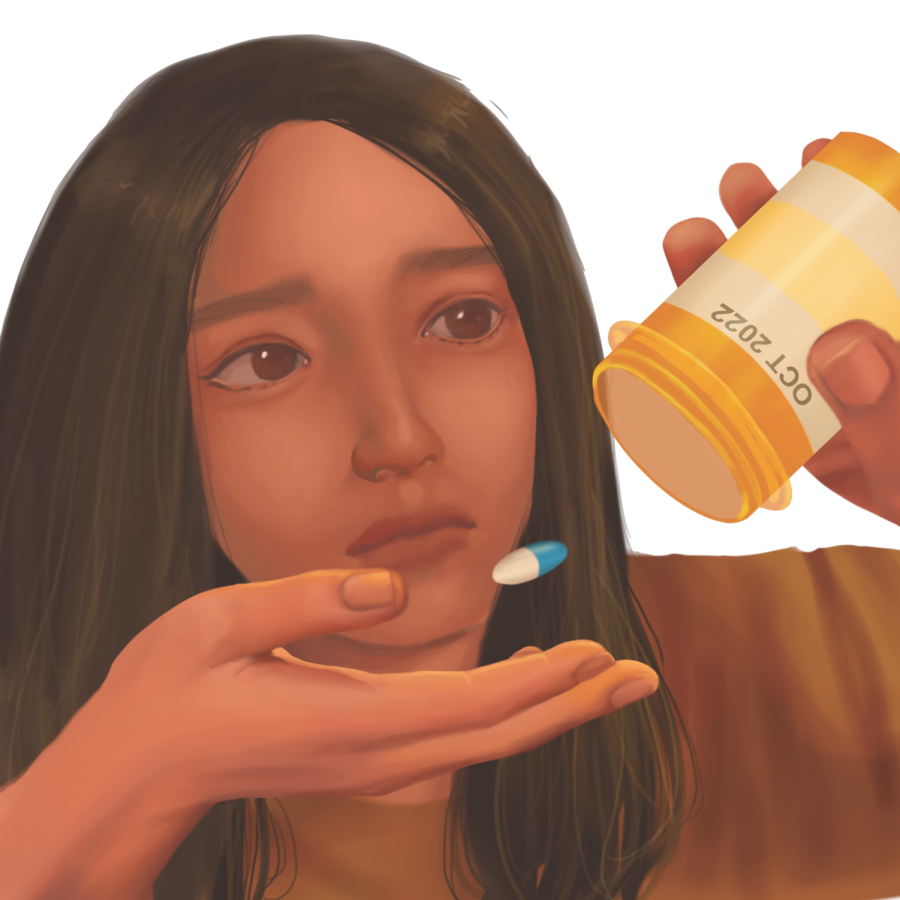Absence of Adderall: Prescription shortage complications
Every 30 days, Palo Alto High School sophomore Elise Fadil goes to her local pharmacy to pick up her Adderall prescription. Fadil said she has taken the medication for the past two years to help manage her Attention Deficit Hyperactivity Disorder. But in October 2022, Fadil walked out of Walgreens empty handed for the first time after being informed that the pharmacy could not fill her prescription.
Fadil is just one of many students across the country impacted by the Adderall shortage, and for her, the problem came at a particularly difficult time: finals week. With only a few pills left, Fadil said she was forced to ration her medication to ensure she could take it before her final exams. That meant, however, she was left without Adderall while preparing.
“I was studying, [and] I just physically could not do it,” Fadil said. “I had to take double the amount of time it usually takes me to really focus on what I was trying to do.”
According to the FDA, the shortage is a result of production delays that coincided with a rise in diagnosis following the COVID-19 pandemic.
For some, the pandemic-induced hours spent in front of screens amplified any symptoms of excessive attention deficit.
Stanford child adolescent psychiatrist, Dr. Gisela Sandoval said she saw the issue first hand with her patients.
“During the COVID-19 pandemic patients reported an increase in ADHD symptoms, such as difficulty paying attention and staying on task,” Sandoval said.
In addition to seeing a rise in ADHD symptoms and consultings, Sandoval also had to meet with her regular patients more frequently to ensure that they were getting the medication that they needed, whether it was Adderall or a substitute.
“We had to sit down with each patient and say, ‘Let’s see what alternatives we can come up with,’” Sandoval said. “The pharmacist couldn’t really tell us how long it was going to be out.”
Sandoval said she had patients that went to every pharmacy from Palo Alto to Mountain view, looking for the correct prescription. In other cases, Sandoval had to switch medications for the patient when there was no Adderall to be found.
“So what we would have to do was another medication trial with a new stimulant, which is very disruptive,” Sandoval said. “I had other patients who just did not respond to the alternative or they had side effects.”
Finding a medication that works perfectly can be very difficult, especially in the midst of a shortage of the most commonly used medication. Fadil said she recently decided to switch to a new medication; however, finding and adjusting to a new prescription can be a very long and grueling process.
I haven’t tried it [the new medication] yet because I’m kind of a little scared to take it just because I’ve been taking Adderall so consistently, and Adderall has been working for me.” Fadil said.
While medication helps Fadil and many others decrease ADHD symptoms, it is often not without side effects and for some, alternate medications can cause new or increased side effects. Appetite suppression and dissociation are just two of the side effects Fadil described experiencing.
“I’m very focused, but I kind of feel like I’m not actually there,” Fadil said. “It’s a really scary feeling.”
Although these medications help immensely with concentration during the school day, Dr. Sandoval said that behavioral strategies can be valuable treatments for ADHD relative to alternate medication.
“ADHD can be treated pretty successfully in part with behavioral strategies,” Sandoval said. “I did enhance that in my therapy [saying to my patients] ‘remember these behavioral strategies, let’s reboot them,’ and I would go over them again.”
Ultimately, Sandoval said she wanted to remind students that whether there is a shortage or not, it is never a good idea to get Adderall unprescribed.
“I just want everyone to have hope because there are alternatives,” Sandoval said. “There are enough alternatives that if you just give things a trial, it will get better.”
Of Paly studnets who said that they take Adderal, 7.6% responded no when asked if their Adderal is perscribed.
Data presented is from an opt-in survey by Verde Magazine of 140 Palo Alto High School students and was colected from March 20 to March 24 through a digital form published on Schoology pages and Verde social media. Responses were anonymous and all questions were optional.



